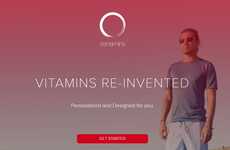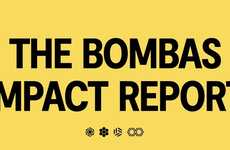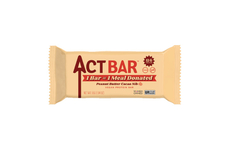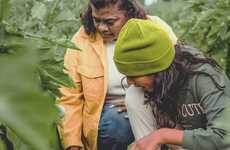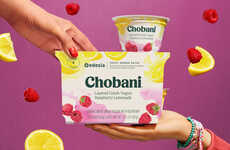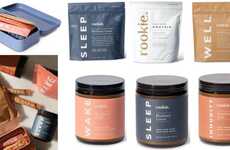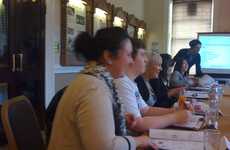
Tiana Reid — July 21, 2011 — Social Good
References: buildnutrition & vitaminangels.org
SocialBusiness.org recently interviewed Josh Rubin, the Co-Founder and Managing Director of Build Nutrition, a one-for-one social enterprise that manufactures prenatal vitamins. While there has been an influx of “buy one, give one” businesses, many of them center on fashion and clothing apparel. It’s refreshing to see a health-focused one-for-one that delivers social good on both the consumer and producer end.
SocialBusiness.org spoke to Josh Rubin about his inspiring story of how he ended up in the ever-evolving world of social entrepreneurship.
Four Questions with Josh Rubin
1. How did you decide to join this sector?
When I was 3 years old I was diagnosed with Tourette Syndrome. I was raised by a single mother and thanks largely to her efforts I have been off medication for the past 5 years. Gabe (my business partner) has been my friend since we were 6. He was able to look past my TS when most of my peers were afraid to even be around me. Hence, I have always had a heightened level of awareness for people who need help, since I can identify with them.
While in university we ran an art gallery for student artists called Campus Canvas. We set up an exhibition for an artist named Laurie Kader, who has a very rare disease called Madelung’s Deformity. We partnered up with the Art For Healing Foundation and together we helped her sell over $8000 worth of her art. Despite our success with Campus Canvas we decided to shut down because it was very difficult to zone in on our target market. We know that we enjoyed helping other people and we definitely wanted to start a social enterprise.
2. How did the idea for the business model come about?
We saw many people build successful brands around specific causes such as Toms Shoes for foot disease, Kind Snacks for peace, Ethos Water for clean drinking water, etc. At the time my sister was pregnant with my nephew and one day I was at her house and noticed her prenatal vitamins. The metaphorical light bulb appeared over my head and Build Nutrition was born (pun intended).
We choose the one-for-one business model because of the interconnectedness in establishes between Build Nutrition, our customers, our non-profit partners, and of course women and children all around the world. It's fantastic that many other social enterprises donate a portion of their proceeds, however we believe that the one-for-one model is more empowering. It's a wonderful feeling to know that whenever you purchase a bottle of our vitamins an actual bottle is sent to somebody in need.
3. How do you get your inspiration?
Sure, it's nice to read a memorable quote or watch a powerful movie, but true inspiration comes from within. For both Gabe and I, the desire to build an organization from the ground up is as strong as our desire to breathe.
4. How do you reset yourself to be creative? Do you have any rituals?
You don't need to create something totally original in order to be creative. In fact, some of the greatest artists, authors and entrepreneurs in the world simply built upon what others had already done before them. That being said, not a day goes by when I don't read a chapter of a book or play a quick game of chess. There are an infinite number of ideas contained within the pages of a book or the checkered squares of the chessboard that can be developed into entire new concepts in their own right. Sometimes, if I'm lucky, I can apply these new ideas to the world of social entrepreneurship!
Photo Credit: © Vitamin Angels/LA11/Dayka
SocialBusiness.org spoke to Josh Rubin about his inspiring story of how he ended up in the ever-evolving world of social entrepreneurship.
Four Questions with Josh Rubin
1. How did you decide to join this sector?
When I was 3 years old I was diagnosed with Tourette Syndrome. I was raised by a single mother and thanks largely to her efforts I have been off medication for the past 5 years. Gabe (my business partner) has been my friend since we were 6. He was able to look past my TS when most of my peers were afraid to even be around me. Hence, I have always had a heightened level of awareness for people who need help, since I can identify with them.
While in university we ran an art gallery for student artists called Campus Canvas. We set up an exhibition for an artist named Laurie Kader, who has a very rare disease called Madelung’s Deformity. We partnered up with the Art For Healing Foundation and together we helped her sell over $8000 worth of her art. Despite our success with Campus Canvas we decided to shut down because it was very difficult to zone in on our target market. We know that we enjoyed helping other people and we definitely wanted to start a social enterprise.
2. How did the idea for the business model come about?
We saw many people build successful brands around specific causes such as Toms Shoes for foot disease, Kind Snacks for peace, Ethos Water for clean drinking water, etc. At the time my sister was pregnant with my nephew and one day I was at her house and noticed her prenatal vitamins. The metaphorical light bulb appeared over my head and Build Nutrition was born (pun intended).
We choose the one-for-one business model because of the interconnectedness in establishes between Build Nutrition, our customers, our non-profit partners, and of course women and children all around the world. It's fantastic that many other social enterprises donate a portion of their proceeds, however we believe that the one-for-one model is more empowering. It's a wonderful feeling to know that whenever you purchase a bottle of our vitamins an actual bottle is sent to somebody in need.
3. How do you get your inspiration?
Sure, it's nice to read a memorable quote or watch a powerful movie, but true inspiration comes from within. For both Gabe and I, the desire to build an organization from the ground up is as strong as our desire to breathe.
4. How do you reset yourself to be creative? Do you have any rituals?
You don't need to create something totally original in order to be creative. In fact, some of the greatest artists, authors and entrepreneurs in the world simply built upon what others had already done before them. That being said, not a day goes by when I don't read a chapter of a book or play a quick game of chess. There are an infinite number of ideas contained within the pages of a book or the checkered squares of the chessboard that can be developed into entire new concepts in their own right. Sometimes, if I'm lucky, I can apply these new ideas to the world of social entrepreneurship!
Photo Credit: © Vitamin Angels/LA11/Dayka
Trend Themes
1. One-for-one Business Model - The one-for-one business model is an opportunity for disruption in the social enterprise sector, as it empowers consumers to make a direct impact with their purchases.
2. Health-focused Social Enterprises - Health-focused social enterprises, like Build Nutrition, are filling a gap in the market by delivering social good through products and services that address specific health needs.
3. Interconnectedness in Social Enterprises - The focus on interconnectedness within social enterprises, where consumers, non-profit partners, and beneficiaries are all involved, presents opportunities for disruptive innovation in creating meaningful impact.
Industry Implications
1. Social Enterprise - Social enterprises have the potential to disrupt traditional business models by prioritizing social impact alongside profit, like Build Nutrition's one-for-one model.
2. Health and Wellness - The health and wellness industry is ripe for disruption as more companies recognize the potential to do good and create innovative products and services that improve people's health.
3. Non-profit Organizations - Non-profit organizations can explore opportunities for collaboration and innovation with social enterprises, such as partnering with companies like Build Nutrition to create sustainable solutions for social issues.
2.4
Score
Popularity
Activity
Freshness

